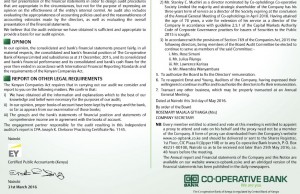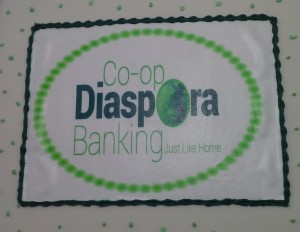Today’s newspapers have the annual general meeting (AGM) notice from Cooperative Bank (Coop). There are some subtle differences from years past, which may indicate stricter rules for all banks, especially in light of the recent bank issues at Chase and Imperial. This is in terms of clearing directors who are meant to be the safeguards for the banks and they depositors whose funds the banks collect and hold.
- There are now separate shareholder votes for members of audit committee each year. Questions have been asked about the quality of audits done at Chase and Imperial, and internal auditor and external auditors report to board audit committees.
- Also in the past, nominees would be appointed by bank shareholders. But you see wording to the effect that shareholders are voting to approve directors, but that this is “subject to regulatory approval” i.e the Central Bank of Kenya (CBK) will have to vet and approve that the individuals proposed to sit on the boards are fit & suitable.
- It is also said that the 70 year age rule is now being challenged. Companies have in the past voted to re-elect directors over 70 years, but it is said that the CBK is now challenging the necessity of having elderly, long-serving directors continue to sit on bank boards, in light of the needs to reinvigorate boards with new blood who understanding modern banking challenges.


